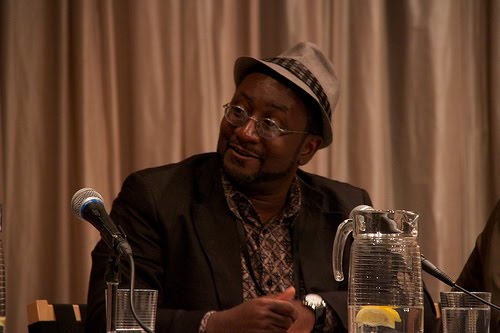"First I have a suggestion/comment about your book and then I have a question. The last time I asked you that question about the character named 'U,' you made a good point about not analyzing your own characters because it ruins it for the reader. However, this time I am going to make a suggestion. In your novel, the character 'U' is arguing that gambling is not an addiction it is more like baseball and chess like the examples he gives. I don't know if I agree with him or with P, who says that it is an addiction because there are many professionals such as 'U' who play poker as a sport and don't seem to be addicted to poker anymore than baseball players are to baseball. For them it is a profession. Do you agree with 'P' or with 'U'?
Second, I have a friend/associate who has an agent that helped him to sell his book. I have a self-published book that is selling decently online and I am seeking an agent so that I can sell it to a major publiser. I have hinted to my 'friend' several times to put in a good word for me with his agent but he has never done so always making excuses about how busy she (the agent) is every time I bring it up. Is he trying to say that he thinks my book is not good enough for his agent? Thanks, a writer/reader."
Okay, let's take the easy question first.
I agree with both P and U. I believe that gambling is an addiction and very, very few people who play it at that high level are free from its addictive powers, despite what they may believe about themselves as professionals.
Poker, a form of gambling, is similar to baseball (or any sport) in that it is a game that must be learned, can be mastered, and it can be played at a professional levels by professionals.
The difference between poker and professional baseball is that a gambler uses his own money--baseball players, and other athletes, are paid to play. If they lose a game of baseball, they still earn a paycheck . . .
If a boxer loses a match, he is still paid . . . if a boxer puts up his own money, betting on himself to win, and he loses, not only does he go home with a bruised nose and ego, but with a bruised bank account.
If they extend the concept of poker leagues that pay professional poker players to compete with each other for the viewing pleasure of others, then that type of poker playing will be different from gambling and similar to what we see in professional sports.
If Tom Brady announces to Peyton Manning, "I will win a Super Bowl this year." That is a prediction. But if Tom Brady says, "I will win a Super Bowl this year, and I will put up my salary this year against Peyton Manning's salary this year to back it up." That is gambling.
Big difference.
And Tom Brady loses either way. If he does not win a Super Bowl, he has to fork over his salary to Peyton Manning. If he wins a Super Bowl and wins the bet, taking Peyton Manning's salary, then he gets hooked on that feeling and becomes a gambler. In a few years he will be broke making those kinds of bets.
Your second question. Some writers, for whatever reason, tend to be jealous of their agents, and unless they really like your book and think you are talented and can trust you not to steal their agent's attention away from them, then they will give your their agent's info and put in a good word for you. A writer who does that for you is showing a great deal of confidence in you.
A great deal.
Thanks,
Preston

No comments:
Post a Comment